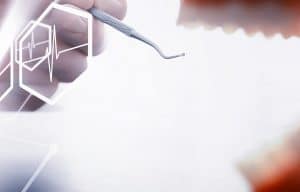 When oral surgery is recommended, it’s typically because the problem that the patient exhibits is too severe or complex to address with more general dental treatments. Given the specific nature and severity of the condition itself, oral surgery could help stop it from having increasingly more complicated effects on your oral health. Today, we examine a few concerns that may be serious enough to warrant oral surgery, and the complications that might arise if they’re not addressed promptly.
When oral surgery is recommended, it’s typically because the problem that the patient exhibits is too severe or complex to address with more general dental treatments. Given the specific nature and severity of the condition itself, oral surgery could help stop it from having increasingly more complicated effects on your oral health. Today, we examine a few concerns that may be serious enough to warrant oral surgery, and the complications that might arise if they’re not addressed promptly.
When your jawbone’s shape is irregular
The growth and development of your facial and oral structures in your early years has a considerable influence on your oral health in adulthood. One of these impacts involves the overall shape, symmetry, and integrity of your jawbone structure, which forms the bulk of your smile’s foundation. If your jawbone is shaped irregular, such as being asymmetrical or too small or short on one side, then this could cause significant problems with your overall bite function. Correcting the imbalance can ensure that your jaw’s joints, or TMJs, can operate smoothly without sustaining damage from excessive pressure. If necessary, jawbone surgery may be able to correct this by making the bone structure even, symmetrical, and in line with your smile’s overall contour.
When a tooth gets stuck in your dental ridge
The last parts of your teeth and oral structures to develop are your third set of molars, which are often referred to as wisdom teeth. They get their name from what was once called the age of wisdom – the ages between 18 and 25 years old. It’s during this time that wisdom teeth typically begin to erupt, and for many patients, their dental ridges are already fully stocked with permanent teeth. This means they have little room to accommodate the third molars, and they may become stuck within the jawbone structure before being able to erupt from the gums. This can cause substantial levels of discomfort and a wide range of subsequent oral health problems, and extracting the impacted wisdom teeth could be the only way to avoid or address them.
When you replace a lost tooth with an implant
Tooth loss is one of the most significant concerns that can result as a consequence of other underlying oral health conditions (such as periodontal disease). The loss of your natural tooth structure and its root can cause problems that include diminishing mass and density within your jawbone structure, which results from reduced stimulation when you bite and chew. Many patients can avoid this by replacing their lost teeth with dental implant posts, which mimic healthy, natural teeth roots. To replace the roots and offer similar support to a custom-designed restoration, dental implants must be surgically placed within the jawbone structure, where the lost teeth roots once rested.
Learn if your oral surgery can improve your oral health
Oral surgery can help you overcome a wide range of potentially serious oral health conditions and regain the healthy, fully functional smile you deserve. To learn more, or to schedule a consultation, call Santa Rosa Oral Surgery in Santa Rosa, CA, today at 707-545-4625.


